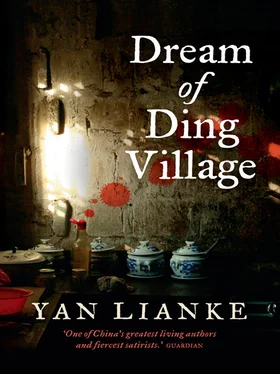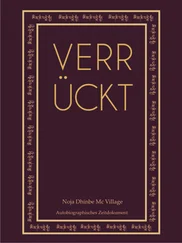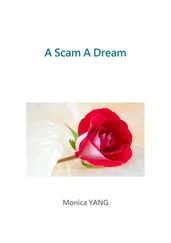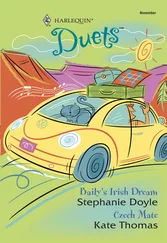Dad had once been a student in Grandpa’s class, but he no longer deferred to him as a former teacher. Grandpa could see the disrespect in his son’s eyes. As he watched my father take up his bowl and continue eating, Grandpa gently set down his own bowl and chopsticks on the table.
After a long silence, he said: ‘Son, it’s not like I’m asking you to commit suicide. I just think you should kowtow in front of the villagers and apologize for what you’ve done.’
My father glared at him. ‘Why should I?’
‘Because you were a bloodhead.’
‘So was everyone who lives on this street.’
‘They were just following your lead. No one made as much blood money as you.’
My father slammed down his bowl, spilling soup all over the table. He threw down his chopsticks. They rolled across the tabletop and clattered to the ground.
‘Dad,’ he said, glaring at Grandpa. ‘If you ever raise this subject again, you’re no father to me. And you can forget about me supporting you in your old age, or even going to your funeral.’
Grandpa sat woodenly, staring down at the table. Finally, he spoke.
‘Son, I’m begging you. . get down on your knees and apologize to the villagers. How can you refuse an old man?’ he said softly.
‘Dad, I think you should leave,’ my father was nearly shouting. ‘Because if you say another word, you’re no father to me.’
‘Hui, it’s not that much to ask. One little apology and we can put this all behind us.’
‘Get out,’ my father screamed. ‘You’re not my father and I’m not your son!’
Grandpa paused for a moment to take in my father’s words. ‘More than forty people in this village have died,’ he said as he stood up to leave. ‘That makes forty apologies, forty kowtows. Or is that too exhausting for you? Would it kill you to apologize?’
Grandpa suddenly looked weary, as if the effort of making this speech had exhausted him. He glanced at my mother, then at my little sister Yingzi.
‘Yingzi, come to school tomorrow and I’ll help you make up those missed classes. Your regular teacher isn’t coming back, so I’ll be teaching language class from now on.’
When Grandpa left, no one bothered to see him to the door. He slowly shuffled out, his back hunched and his head bowed, like an old mountain goat after a long day’s trek.
1
There are only three streets in our village. One runs east to west, the other two run north to south. Before New Street, the village streets formed a perfect cross, the same shape as the Chinese ideograph meaning ‘ten’. After New Street was added, the village looked more like a cross with a horizontal line underneath, the same as the Chinese ideograph meaning ‘earth’.
After his fight with my dad, Grandpa left New Street and went to my uncle’s house, where he brooded for a while before walking the mile back to the elementary school. The school had originally been part of a village temple dedicated to Guan Yu, the god of wealth. Guan Yu’s shrine had occupied the main hall and the classrooms were in an adjacent wing. For decades the villagers had come to the temple to burn incense and pray for wealth, but when they started getting rich from selling blood, they tore down the temple. They didn’t believe in Guan Yu any more: they believed in selling blood.
After the villagers converted to blood-selling, they built a new school on several acres of uncultivated land, just south of the village. They built a red-brick wall and a two-storey schoolhouse facing east. They installed plate glass in all the windows and wooden signs on all the classroom doors: ‘Grade One, Class One’; ‘Grade Two, Class One’, ‘Grade Three, Class One’, although because the village was so small, there was never more than one class per grade. A basketball hoop was put up in the schoolyard, and a wooden placard reading Ding Village Elementary School was hung from the main gate. And that was it: Ding Village had a brand new school. Grandpa moved in as the permanent caretaker. And besides Grandpa, there were two other teachers, one to teach mathematics and one for language. Both were young and had been hired from outside the village. The only thing was. . when they found out that Ding Village had the fever, they both stopped teaching and never came back.
No way were they coming back.
No way in hell.
And so Grandpa found himself alone in the school. He was caretaker to the doors and plate-glass windows. He looked after the desks, chairs and blackboards. Grandpa was the school watchman in the wretched days of fever that swept the village and the plain.
Even now, years later, the place still had that new-school sulphur smell. On certain late autumn nights, the fumes from the school were even stronger than those from New Street. But Grandpa always found the smell of sulphur to be calming. It set his mind at ease, and made him think of days gone by.
On this particular autumn evening, dusk had come and gone and the school was bathed in silence. The blanketing silence of the plain, a quiet that seeped into the schoolhouse and billowed out again like fog. Grandpa sat on the base of the basketball hoop in the centre of the schoolyard and raised his head to the sky, enjoying the feeling of the moist autumn air on his face. It was only then that he realized he was hungry. Because of his trip to the county, he’d hardly eaten that day. His hunger set his nerves on edge and made his heart feel tight in his chest. With each pang of hunger, each tug of his nerves, Grandpa’s shoulders trembled.
His mind drifted back to springtime many years earlier. One by one, the events appeared before his eyes as if it were yesterday. Like freshly budding leaves, the images unfurled and rose up before him, as crystal clear as the full moon in the sky.
Grandpa saw each detail of that spring with perfect clarity, and he knew.
A sudden gust of wind set the leaves rustling in the trees, reminding him of a long-forgotten spring. And with that spring came the county Director of Education, with two cadres in tow, to mobilize the villagers to sell their blood. It was only halfway into the spring, but the village had already settled into the warmth and comforts of the season, the fresh spring air and pleasant fragrances wafting through the streets. Until, that is, until the Director of Education blew in to meet with Li Sanren, the village mayor, and informed him that the higher-ups had decided to organize a blood-selling drive among the villagers.
‘You want them to do what?’ Mayor Li’s jaw had dropped in shock.
‘Good Lord. Who ever heard of asking people to sell their blood?’
Three days later, when the mayor had still not held a meeting to mobilize the villagers to sell their blood, the county director made another visit to Ding Village. While the director pleaded his case, Mayor Li squatted on the ground and chain-smoked in silence.
A fortnight later, the director returned again. This time, he hadn’t come to lobby the mayor about the blood drive, but to sack him.
After forty years as the mayor of Ding Village, Li Sanren was fired from his post.
Following a brief announcement, a village meeting was held. Li Sanren sat through the meeting slack-jawed, too shocked to speak. Not that it mattered, because the county director did most of the talking. After taking control of the meeting, he made a personal appeal to the villagers to sell their blood. He talked at length about the past, the future, the development of a ‘plasma economy’ and the need for a ‘strong and prosperous China’.
When he had finished his spiel, the director stared at the silent villagers.
‘Well, did you hear what I said? Speak up!’ he barked. ‘I’m not here just to hear the sound of my own voice, you know. What’s wrong with you people? Did you leave your ears at home? Has the cat got your tongues?’
Читать дальше












